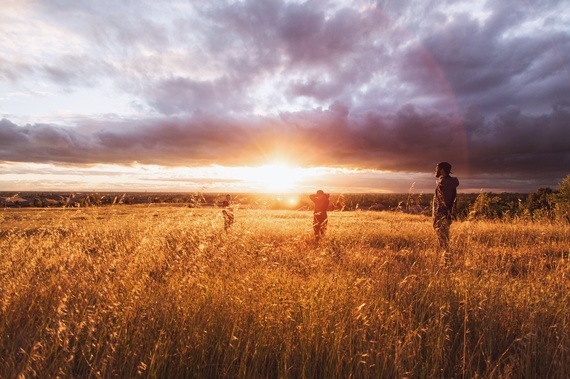optimism
(ˈɒptɪˌmɪzəm) n
1. the tendency to expect the best and see the best in all things
2. hopefulness; confidence
We've all heard it before -- are you a "cup half full" or a "cup half empty" kind of person. Me? I never knew -- and still don't know - quite how to answer that question. Am I an optimist? A pessimist? Does it depend on the size of the glass and what it's full of?
If you answer "yes" to any of those questions, I'd have to say you are an optimist -- at least most of the time.
Optimists don't always have all the answers. They aren't always smiley and cheery and living life on the edge; right there, it would knock me out of the "Don't Worry, Be Happy' group right there.
And where would that leave me? Pessimist? A "person who habitually sees or anticipates the worst or is disposed to be gloomy?" Well, sometimes, but not always. Sometimes life is gloomy. Sometimes really, really bad things happen -- things so bad that we struggle to find a reason, to make sense, to ground ourselves in a place of security. When we fight the inner critic that tells us that we're no good, that people are mean, and that evil exists in the world and unless we have superpowers, we can't fight back.
We wonder why bad things happen to good people. Why earthquakes and tsunamis and tornadoes wipe out thousands of innocent lives in a single moment. We ponder suicides and mass shootings and children who die and parents who have a terminal disease... when you think about it, being an optimist requires an antidote to kryptonite.
Optimism requires hope. It expects good to triumph over evil. It obliges us to believe in heroes, in the rewards of virtue and that every cloud has a silver lining. Optimism requires us to believe that we can make a difference if we just put one foot in front of the other, even on those days when we feel like curling up into a ball and closing out the world.
Therefore, I proclaim myself an optimist.
Think about it -- when was the last time you heard someone say they were 'blessed'? This morning? Last night?
I hear it every day, multiple times. In fact, I hear it so much I wonder if the true meaning is being lost. I wonder if what they really are saying is "I-know-this-is-hard-but-I'm-aware-that-I'm-luckier-than-most."
Is that being an optimist? I would argue, yes.
And I'll admit -- I have it luckier/better/easier than most people in the world. Travel has taught me that.
I'll also admit that I've had some challenging shit happen to me in my life - and to those I care most about.
Last summer, when Cameron broke his leg and we had to figure out what to do next, I decided that every day we would look for 'silver linings'. I used those exact words, and when we were in the hospital, or stuck on a couch far away from home, or trying to navigate a full leg cast in a wheelchair or attempting to understand why-this-happened-to-him, we would stop, and say three 'silver-linings'.
And I have to say, it helped.
This essay originally appeared on mamawolfe.
